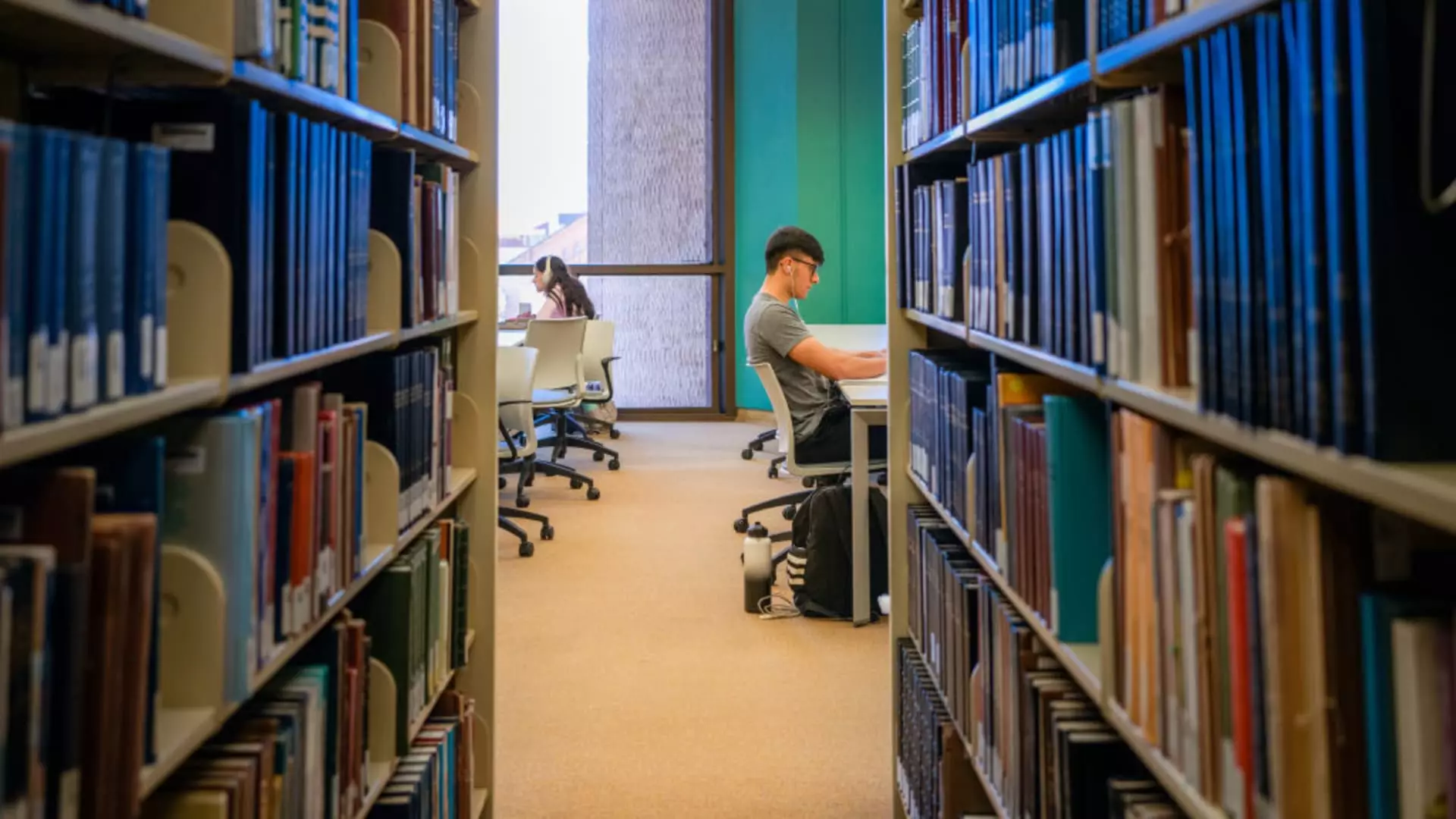The recent halt on student loan forgiveness, particularly under the Income-Based Repayment (IBR) plan, exposes a troubling unwillingness within the federal government to prioritize the financial stability of millions of Americans. While policymakers often tout the importance of higher education and government assistance, their actions—or lack thereof—paint a starkly different picture. The pause on debt discharge, justified recently by legal entanglements stemming from court rulings, feels more like a bureaucratic excuse than a genuine effort to protect fiscal responsibility. It conveniently sidesteps the urgent needs of families who are already burdened with soaring healthcare, housing, and childcare costs.
The reality of this situation is that nearly two million individuals who have been counting on the IBR plan to alleviate their financial strain are now left hanging. This delay undermines not only their immediate economic prospects but also their long-term financial health and social mobility. The government’s inability or reluctance to expedite the resumption of debt forgiveness reveals a systemic indifference—a failure to see education debt as a crisis demanding swift action rather than bureaucratic foot-dragging.
The Myth of Fiscal Responsibility Versus Moral Obligation
In defending the pause, the Department of Education cites legal challenges and court rulings as rationale, yet these are conveniently used to mask an underlying neglect of moral responsibility. The courts have repeatedly upheld the legitimacy of income-driven repayment plans, including IBR. Denying borrowers the benefits they were promised after years of diligent payments reveals a troubling disconnect between legal frameworks and ethical obligations.
If anything, this situation underscores the need for a reevaluation of our financial priorities. Is bankruptcy and debt relief only for the wealthy, or for those who have sacrificed years of their lives pursuing education? Postponing debt forgiveness transforms a promise into a bureaucratic game—an echo of an economy that privileges the affluent and leaves working and middle-class families holding the bag. This choice not only perpetuates inequality but also stifles economic growth, as borrowers constrained by debt cannot invest in homes, start families, or pursue entrepreneurial ventures freely.
The Broken Promise and Its Broader Consequences
The delay in implementing debt forgiveness is more than a mere administrative hiccup—it’s a breach of trust. Borrowers who have adhered to the terms of their repayment plans now find themselves uncertain about their futures, unable to rely on the federal government to honor its commitments. This erosion of trust further discourages timely payments and fosters a climate of skepticism toward government programs meant to assist the vulnerable.
More insidiously, the interruption hampers efforts toward economic equity. Student debt has become a defining barrier for many marginalized communities, often serving as the largest financial hurdle in achieving upward mobility. When the government fails to deliver on promises of relief, it perpetuates a cycle of inequality that disproportionately affects Black and Latino students, who already face systemic barriers. The inaction undercuts the very mission of higher education as an engine for social and economic empowerment, instead transforming it into an instrument of ongoing hardship.
The Need for Progressive Reform, Not Partido Politics
This scenario demands a shift away from short-term political maneuvering and towards a long-term vision rooted in social justice. A center-leaning liberal stance would advocate for responsible policies that recognize education debt relief as a moral imperative rather than a partisan bargaining chip. Policymakers must prioritize crafting straightforward, transparent mechanisms that ensure borrowers receive the relief they are legally entitled to. The current focus on court rulings and legal technicalities distracts from the urgent need for compassionate, equitable reforms.
Furthermore, the failure to resume debt forgiveness reveals a broader negligence in addressing the root causes of student debt accumulation—namely, the skyrocketing costs of higher education and the lack of preventive measures to mitigate the financial burden of college. Progressive reform should emphasize public investments in higher education, eliminating the need for burdensome loans altogether, rather than relying solely on debt relief programs that are susceptible to legal and political gambits.
A Call for Courage and Commitment
Ultimately, the delay in student loan forgiveness is a reflection of a system that is increasingly out of touch with ordinary Americans’ realities. It exemplifies a government more attuned to bureaucratic and legal complexities than compassion and social responsibility. Borrowers deserve leaders who understand that the promise of an education is also a promise of economic liberation—a promise that should not be broken behind legal disputes or political stalemates.
As a society, we must demand courageous leadership that prioritizes the well-being of its citizens over the machinations of legal technicalities or partisan games. Student debt is not merely a financial issue; it’s a moral challenge that tests our values of fairness, opportunity, and shared prosperity. Resuming loan forgiveness should be a non-negotiable step in repairing that broken trust, reaffirming our commitment to a future where education truly remains a pathway to equity rather than a trap of debt.

